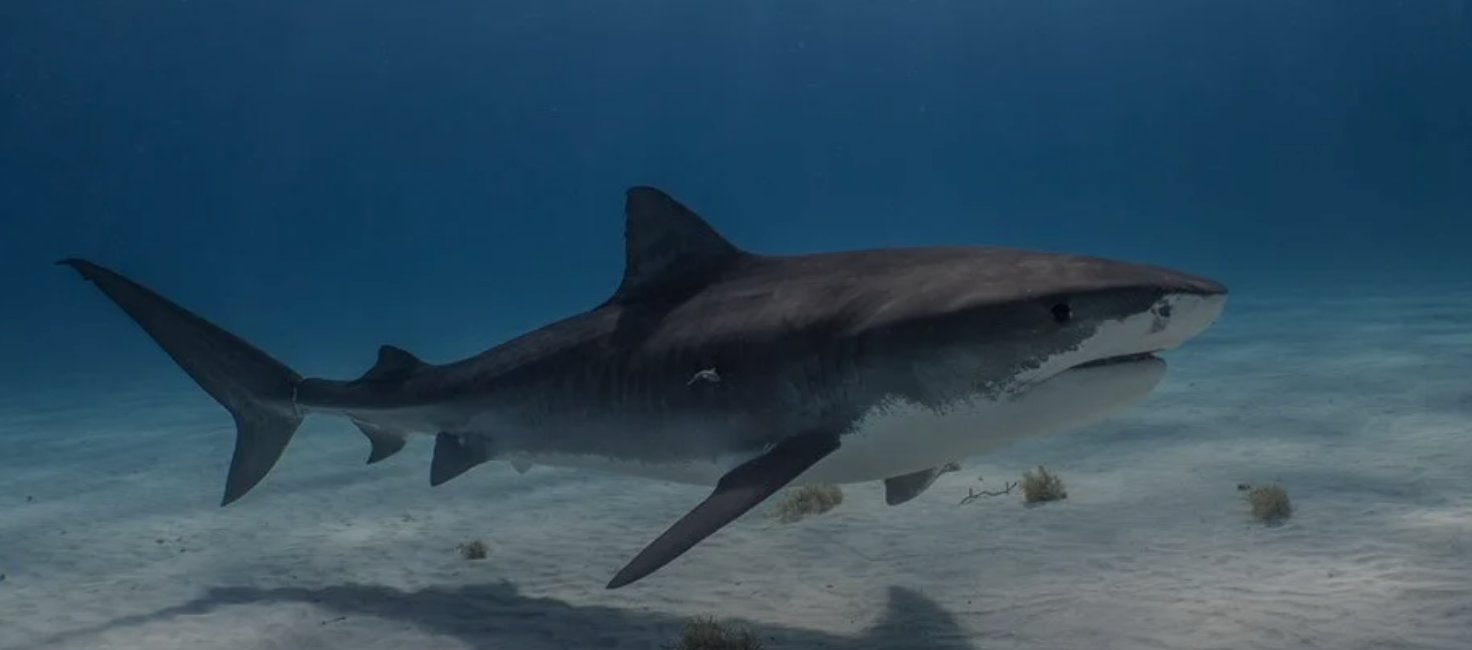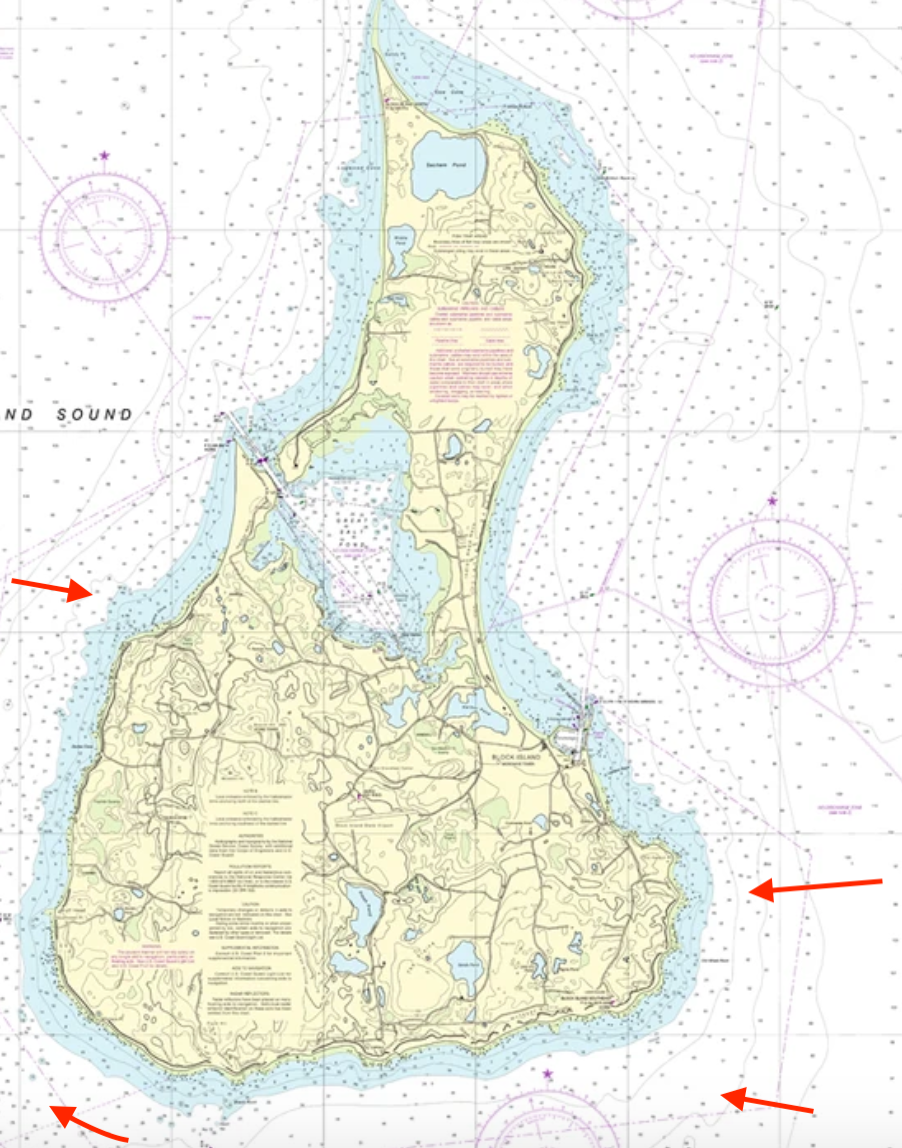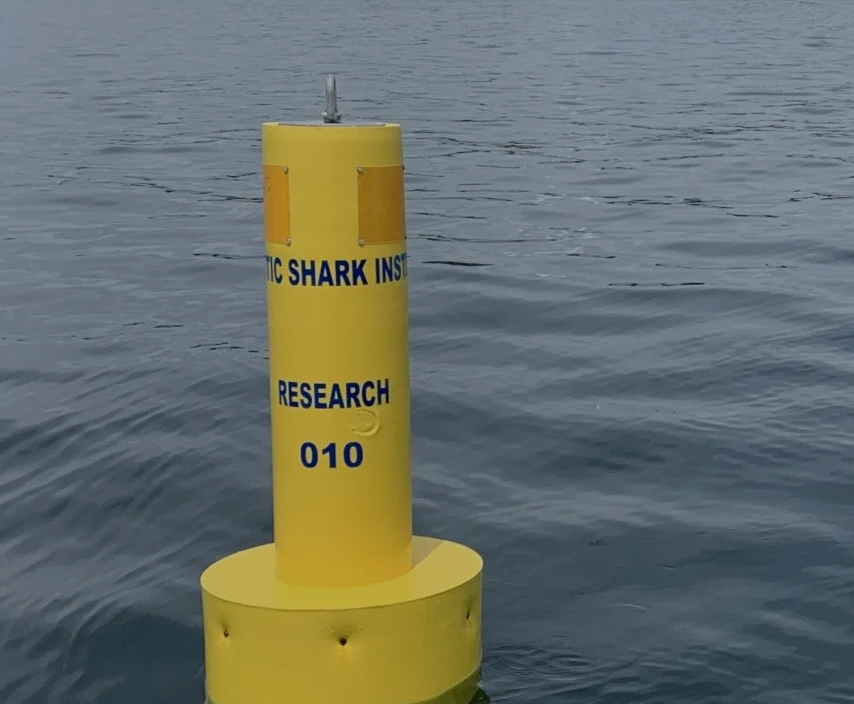4 Great White Sharks Tracked off Block Island
The Atlantic Shark Institute announced last Wednesday that it detected four great white sharks in the waters off Block Island. The institute discovered the sharks using an array of seven acoustic receivers set up as part of a long-term study of shark activity near the island, according to Jon Dodd, executive director of the institute.
Big Fish
The four great white sharks ranged in size from a little more than 8’ (2.43 m) to more than 13 (3.96 m).
The sharks had been tagged between 2015 and 2019 by Greg Skomal, of the Massachusetts Division of Marine Fisheries. The acoustic receivers detected a ping that the tags send out. A female was named Miss Carolina because of where she was tagged.
The acoustic receivers include nine launched by the DEM and 10 by the Atlantic Shark Institute. They stretch from the mouth of the Sakonnet River in Little Compton, R.I., to Fishers Island in Montauk, N.Y., to detect the presence of any tagged fish entering Rhode Island. The 7’ (2.13 m) tall receivers are submerged to depths ranging from 30’ (9.14 m) to 85’ (25.91 m). Any tagged shark that swims within 3,000’ (914.4 m) of the receivers sets off a ping that lets researchers know which shark came by and when.
The sharks were detected at the Block Island Wind Farm, the Southwest Ledge, the Southeast Corner of Block Island, and on the West Side of the Island. While the species has been spotted pretty regularly off Cape Cod in Massachusetts, great whites haven’t been as prevalent in Rhode Island waters. “All we’re doing now is, we are confirming what has probably going on for eons,” Dodd said. He added that all the fish were swimming from the west side of the island to the east at a rapid pace.
No Threat to Swimmers
The sharks were far offshore so there was no danger for swimmers on Block Island’s beaches. When the project was launched last year, two great whites were detected in Rhode Island. When the institute added more receivers to Block Island, they picked up more sharks earlier in the season.
The state is also reaching out to anglers and operators of fish traps to ask for their help in tagging any great whites they catch. The information will help researchers better understand sharks’ migratory habits.
This research is being done in collaboration with Conor McManus, of the R.I. Department of Environmental Management, Division of Marine Fisheries.
Shark sightings in Massachusetts closed beaches many times last summer. In 2018, there were two attacks by great whites on Cape Cod beaches including one that killed a 26-year-old Massachusetts man.



